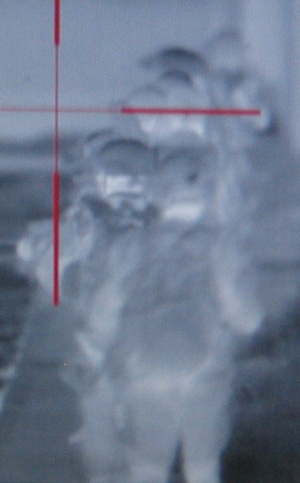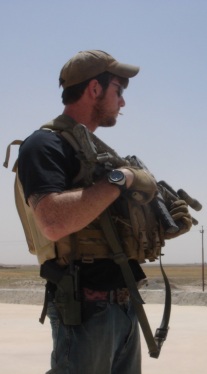With the Army issuing a press release to announce a new Discovery Channel Special called Hell and Back, Special Ops Ranger, there was one curious factoid published with it that left many of us in the Ranger community taken aback. The documentary follows a class of prospective Rangers through RASP, the Ranger Assessment and Selection Program which is a pre-requisite for serving in the 75th Ranger Regiment. The Ranger Regiment is known to maintain tough standards in regards to everything from physical appearance, to maintenance of equipment, and most importantly, performance in combat and job competency. These standards are enforced, violators are shown the door and Released For Standards but more critical than that, these non-performers are usually never allowed through the door to begin with, they are weeded out during the selection process which historically only has a 30% graduation rate.
This is why we were shocked when the Army press released stated, “114 Soldiers started Class 5-12; 91 Rangers graduated.” This is a shockingly high graduation rate of about 80% as opposed to the historical 30% that pass RASP and before that RIP. These graduation rates signify is massive drop in the physical and/or academic standards that RASP students are being held too in order to move on to a Ranger Battalion.











My suspicion is that the controlling elements are laying the groundwork for the first females to come through. Lower the standards before they show up.
I’ve been hearing a lot of that Gary and I just don’t think that is the case. They have lowered standards previously in BUD/S, SFAS, and RIP and that had nothing to do with allowing women into the ranks.
Jack – well done. You are asking questions that need asked. I would see nothing less from you based on your history.
Watch how this plays out in budgeting….gonna be nasty.
I think it already is John!
While I’m not saying you are wrong…I would ask the question the other way around first.
a. Is there something special about the class that was tracked by the Discovery Channel? I am not familiar with the show-concept, but if it is a full season of following RASP around, there could be pressure to keep a cast together.
b. Are soldiers today more prepared for RASP? There are many more sources of information about what to expect today, and a young man enlisting into the service today is armed with what to expect at every step. A 18 year old today has grown up in a nation at war, read all the books, watched all the youtube videos, played all the video games, and is well aware of what he’s getting into. And with the proliferation of CrossFit gyms and veterans returning to the civilian population, there are many more resources to get “primed.”
c. What is turnover looking like inside the Regiment? Having worked in recruiting for the Marine Corps, when things were looking bad in 2006-2008, we broadened the doors a bit. The standards (by which I mean the written doctrine and order) never changed. But how it was interpreted got a bit…let’s say more liberal. People that have no shot in hell today were gladly accepted back then. End-strength is everything to manpower planners.
d. I just thought of this, so I’ll throw it out in closing. The army today is full of people who have been there, done that. Eventually, some of them will want to be Rangers, so that when they go there, and do that, it will be surrounded by people as motivated and aggressive as they are. Could it be that the modern, experienced soldier who goes through RASP is simply more experienced and motivated?
I generally will fall into line in believing the worst possible outcome when it comes to higher (especially about the Marine Corps, but that’s neither here nor there…), but this being “made for TV,” I would look under the rug a bit before drawing stark conclusions about RASP just yet.
Good questions:
A: No, it was just one show.
B: I would like to believe this, if a future Ranger applied himself he could compile information from a variety of internet messageboards and get a basic picture of what to expect. I’m told Dick Couch’s new book is pretty good so that may be the first real go-to source of information for these kids. However, I doubt that this is why there is a massive upswing in graduates. A class full of well informed PT-studs who just wouldn’t quit? The Army loves statistical analysis these days so I wonder what they would say are the statistical odds of this happening. It also does not account for the abnormally high graduation rates in the classes after the Discovery Channel special was filmed.
C: Turn over has always been high in the Ranger Regiment. It’s a very demanding job and a lot of Rangers will pop smoke after their initial enlistment.
D: Most of those who attend RASP are straight out of Basic Training and Airborne School. Those with previous military experience are very much in the minority.
When I did RASP in 1964-5 it wasn’t called that (Old 6 Company, Ranger Regiment) we didn’t take a Florida Vacation either, they helocast us in the ‘Iron Triangle’ if you came back, some MAC-V puke pinned you.